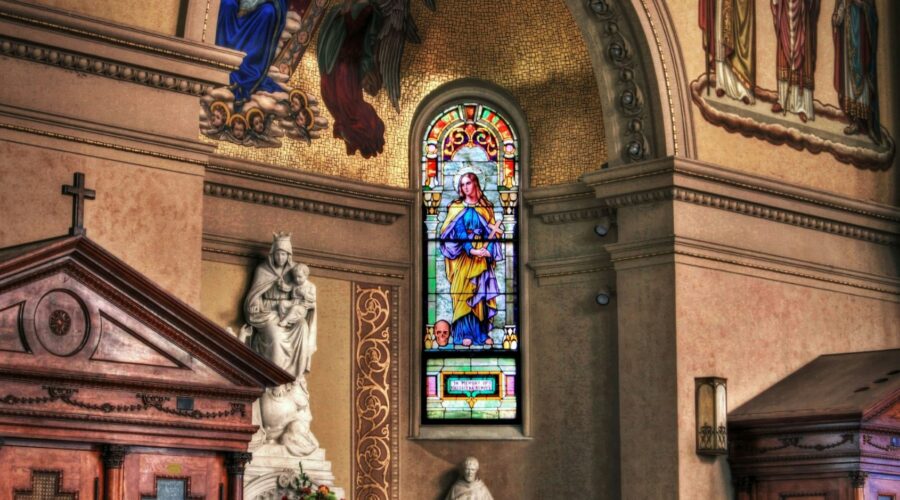John Chrysostom, also known as John of Antioch, was a prominent theologian, archbishop, and preacher in the early Christian Church. Renowned for his eloquent sermons and unwavering faith, he earned the title Chrysostom, meaning “golden-mouthed,” a testament to his exceptional oratory skills. This comprehensive blog post explores the life, teachings, and legacy of John Chrysostom, providing an in-depth understanding of one of Christianity’s most influential figures.
Early Life and Education
John Chrysostom was born in Antioch, Syria, around 347 AD. His father, Secundus, was a high-ranking military officer, while his mother, Anthusa, was a devout Christian. Growing up in an affluent and cultured environment, John received a first-rate education in rhetoric, philosophy, and theology.
Education and Literary Influences
- Studied under the renowned pagan rhetorician Libanius
- Influenced by Greek classics, particularly Plato and Aristotle
- Thoroughly familiar with the Old and New Testaments
Conversion to Christianity
Initially pursuing a successful career as a lawyer, John underwent a profound conversion experience around the age of 25. Deeply affected by the writings of the Desert Fathers, he withdrew to a nearby desert monastery, where he spent several years in prayer, meditation, and study.
Baptism and Asceticism
Baptized by Bishop Meletius in 368 AD, John embraced an ascetic lifestyle
- Practiced celibacy and fasting
- Committed to poverty and humility
Priesthood and Preaching
In 386 AD, John returned to Antioch and was ordained as a priest by Bishop Flavian. His exceptional preaching abilities quickly gained him recognition throughout the city.
Characteristics of Chrysostom’s Preaching
- Clear and eloquent language
- Use of vivid imagery and allegories
- Practical application of Biblical principles
- Emphasis on the importance of morality, charity, and humility
Archbishop of Constantinople
In 398 AD, Emperor Arcadius appointed John Chrysostom as Archbishop of Constantinople, the capital of the Eastern Roman Empire. This appointment marked a turning point in his life, bringing both great opportunities and challenges.
Ministry in Constantinople
- Established hospitals and almshouses for the poor
- Preached against corruption and social injustice
- Reformed the clergy and monastery system
Controversies and Exile
Chrysostom’s reforms and outspoken criticisms of the imperial court and Empress Eudoxia aroused opposition. In 403 AD, he was deposed on charges of treason and exiled to Cucusus, a remote outpost in Armenia.
Causes of Conflict
- Condemnation of Empress Eudoxia’s extravagance
- Refusal to yield to political pressure
- Threats against the imperial court’s authority
During his exile, Chrysostom remained steadfast in his faith, writing numerous letters and homilies that inspired and encouraged his followers.
Death and Canonization
In 407 AD, Emperor Theodosius II recalled Chrysostom from exile, but he died shortly after his return to Constantinople. He was canonized as a saint by the Orthodox Church, and his feast day is celebrated on September 13th.
Legacy and Impact
John Chrysostom’s legacy as a theologian, preacher, and ascetic continues to inspire and shape Christian thought and practice today.
Writings and Homilies
Chrysostom’s prolific writings include sermons, commentaries, and letters that offer a wealth of insights into early Church history and Christian doctrine.
Theological Contributions
- Emphasis on the importance of the sacraments and liturgy
- Defense of the Nicene Creed
- Proponent of the doctrine of the Holy Trinity
Influence on Church Tradition
- His writings have shaped the liturgical practices and teachings of both the Eastern and Western Churches
- Recognized as one of the four great Doctors of the Church in the Roman Catholic tradition
- Venerated as a patron saint of preachers and orators
Conclusion
John Chrysostom, the “Golden-Mouthed Preacher,” was a towering figure in early Christianity whose teachings and legacy continue to resonate today. Through his eloquent sermons, unwavering faith, and tireless advocacy for the poor and oppressed, he left an enduring mark on the Church and the world. His writings and theological insights continue to provide guidance and inspiration for Christians of all denominations, making him an enduring symbol of the transformative power of the Gospel.


Leave a Reply